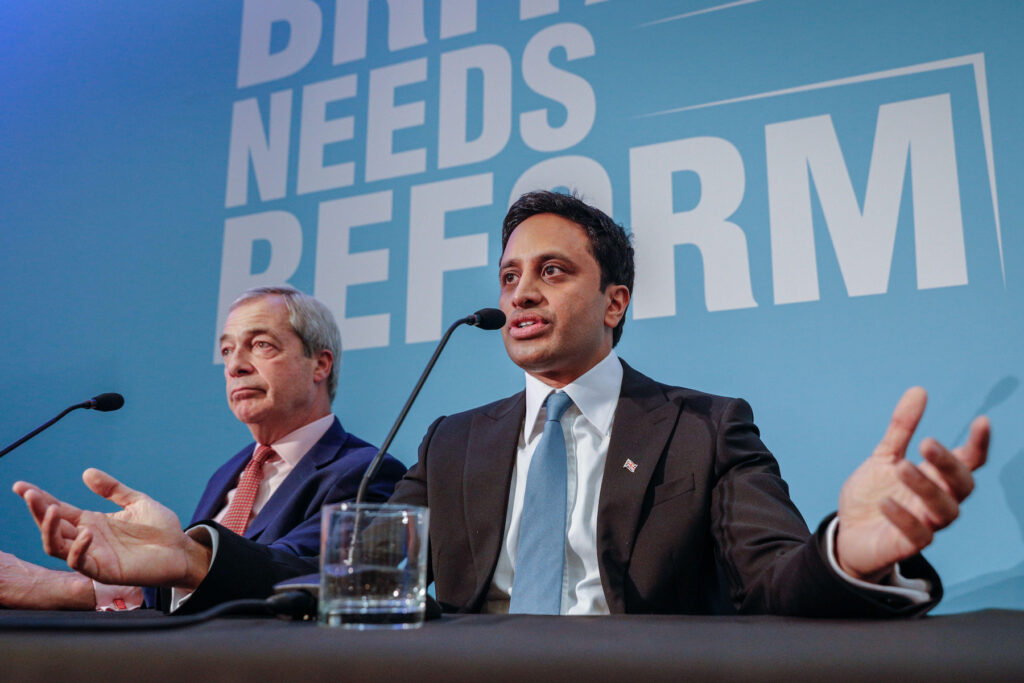This is a guest post by US-based environmental communications group, Climate Nexus.
Longtime climate contrarian and “coal baron” Matt Ridley returns to the Wall Street Journal to try to argue against data that show clean energy rapidly scaling up, and the science of climate change that links last year’s record heat and widespread extreme weather with carbon pollution.
Ridley, whose family estate has a coal mine on it that will generate an estimated £4 million (or $5.8 million) every year until 2020, does the Journal’s readers a grave disservice by distracting them from the coming energy disruption as renewables scale up, argues Climate Nexus.
Ridley repeats unoriginal arguments, citing obvious benefits from the Industrial Revolution while dismissing the global consensus of the scientific community that carbon emissions are altering our climate, giving us record-breaking heat and contributing to extreme weather events like California’s drought and, through warmed waters and atmosphere, strengthens hurricanes and cyclones like the one that just devastated Vanuatu.
Ridley’s love letter to fossil fuels is wrong on multiple counts, most notably the following:
- Renewable energy is only limited by technology used to capture it, while fossil fuels are innately limited by supply and extraction. Ridley’s presentation of renewables ignores the fact that technological advancement happens rapidly and due to breakthroughs and innovation, and scaling up happens in a non-linear and unpredictable fashion.
- The rapidly falling costs of clean energy have already begun to replace fossil fuels in bringing power to the poor. Claiming that fossil fuels are somehow required for development ignores the reality that developing countries use new technology to leapfrog the traditional technology path.
-
The existing climate science on the impacts and threat of climate change is tremendous, and still growing. By looking at only a small set of papers confined to a small period of time, Ridley ignores a much larger body of evidence showing that continued fossil fuel emissions are an urgent cause for concern.
Falling Price, Soaring Development
Renewables are falling in price, soaring in deployment and increasingly upsetting the traditional energy world and its financing. Renewable energy is constrained only by the technology, meaning that advancements happen much more quickly than Ridley gives them credit for.
By focusing on the past, Ridley ignores the present, which is seeing massive investments in clean energy and rapid technological advancement.
Leading firms like Google (who just made a $300 million investment in solar) and Apple (who just spent nearly $2 billion to ensure its data centers run on clean energy) are investing heavily in clean energy, while the military is making use of renewables to reduce its operating costs and keep troops safe.
If clean energy is good enough for some of the most profitable and forward-looking companies on the planet as well as reliable enough for the military, then they clearly deserve more credit than Ridley gives them.
Ridley ignores the fact that innovations and scaling up are happening now. His assertions that they are too weak and inefficient to be a major player are analogous to someone claiming in the 1980s that computers are too weak and inefficient to be widespread.
The Department of Energy has just released a report finding that by 2050 wind power can be the largest provider of electricity in the nation, clearly contradicting Ridley’s unfounded assertions.
Ridley’s entire argument is undermined by the failure of the market to price the burdens of pollution and climate change into the cost of fossil fuels, a challenge integral to the rising calls for a price on carbon which have come from sources as disparate as theWorld Bank and BP.
Clean Energy
Clean energy is replacing fossil fuels in lifting developing nations out of poverty. Just as developing countries are adopting cell phones without ever laying down landlines, they are deploying clean energy instead of fossil fuels.
In India, where a third of the country doesn’t have electricity, the tax on coal has just doubled, with that money going to fund clean energy efforts to bring power to the poor. The fact that poor countries are developing renewables at twice the pace of rich ones gives lie to Ridley’s conclusion that the poor need fossil fuels to prosper.
He also ignores the deep challenges pollution is causing in China and India, and how clean energy can avoid health impacts caused by dirty fossil fuels.
Further evidence that development need not be inexorably linked to fossil fuels can be found in the International Energy Agency’s recent announcement that 2014 saw economic growth without a growth in the rate of emissions.
Ridley’s assertion that because fossil fuels provided the energy for development in the past means they should keep investing in fossil fuel infrastructure is like saying that developing countries should build punch-card computers for their technological needs.
Severe Consequences
Climate change is reason enough to end fossil fuel use as quickly as possible. A look at all the literature, and not just that selected by oil-funded Pat Michaels as referenced by Ridley, shows that we are on track for severe consequences from unfettered emissions.
And Then There’s Physics has an entire post dedicated to Ridley’s scientific mistakes. In short, long-term climate models have consistently supported the warming trend we’re seeing.
A recent study looked at 114 model simulations of the past 112 years found that, despite the continued insistence on focusing solely on the warming rate of the past 15 years, the models have accurately predicted the temperature increases overall, with some predictions that are occasionally too high but also occasionally too low.
By clinging to the slower rate of overall warming in the past 15 years, Ridley is ignoring the massiveuptick in ocean temperatures and fails to acknowledge that nine of the ten hottest years ever have occurred since 2002.
Sea level rise has accelerated, climate change has contributed to devastating extreme storms, heatwaves, and droughts (both in the U.S. and abroad), and Arctic sea ice isvanishing fast. Trends in Antarctic sea ice require a bit more nuance to understand, but there is plenty to be concerned about there, too.
Ridley cites an increase in green vegetation as a benefit of climate change, but this is misguided on several counts. First, high carbon dioxide levels have been found to boost growth only temporarily before stunting plants. High carbon dioxide also results in lower nutritional content in crops.
The hypocrisy of an essay calling for greater reliance on fossil fuels while dismissing the overwhelming evidence and growing impacts of fossil-fuel driven climate change is astounding. Yet it is unsurprising, since it has been Ridley’s calling card for years.
A version of this article originally appeared on the Huffington Post.
Photo: Climate Nexus via Huffington Post
Subscribe to our newsletter
Stay up to date with DeSmog news and alerts







